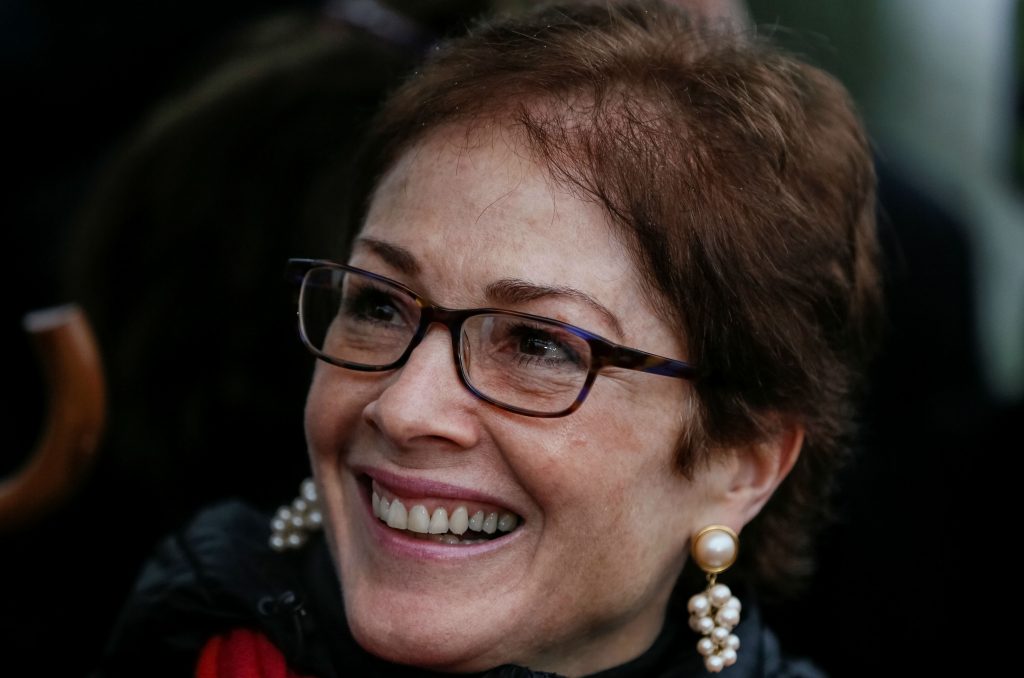Last week the Trump administration recalled US Ambassador to Ukraine Marie Yovanovitch two months earlier than expected. Various forces within Ukraine’s presidential administration, including the attorney general, had been calling for her head after she gave a speech that pointed out Ukraine’s lackluster commitment to reform on Poroshenko’s watch. The lack of an ambassador puts the United States in a weak position with a new Ukrainian president about to take over and parliamentary elections in October. But let’s put aside the politics and focus on Ukraine’s domestic situation.
It’s been nearly a month since Volodymyr Zelenskiy was elected and he still hasn’t been sworn in because of political games. Parliament finally agreed to hold his inauguration on May 20. According to Ukraine’s Constitution, a new president can call for early elections before May 27; after that date, the parliament can’t be dissolved and elections will be held on October 27.
Early Rada elections would undoubtedly benefit Zelenskiy. Riding on the momentum of Zelenskiy’s electoral victory in April, his Servant of the People political party enjoys almost 28 percent support in the polls.
On the other hand, being a newcomer without any previous political experience, Zelenskiy’s team lacks professionals and a clear strategy for its first steps in office. One Ukrainian scholar who visited Washington recently lamented that no one knows who Zelenskiy’s top candidates for the most important positions he appoints, including the Ministers of Defense and Foreign Affairs as well as the head of Ukraine’s Security Service (SBU), will be. It’s also unclear who is advising Zelenskiy on national security and foreign policy.
After Zelenskiy’s victory, power seekers moved to influence him, including those who don’t necessarily share Western values. A recent investigation revealed that there are four informal groups of influence in Zelenskiy’s team. One is led by Iliya Pavliyuk who, according to reporters, coordinates financial issues. Before the Euromaidan revolution, Pavliyuk served as an assistant to Ihor Kaletnik, a corrupt politician from the Communist Party who fled to Moscow after then President Viktor Yanukovich was ousted in February 2014.
Another influential person in Zelenskiy’s team is Andriy Bohdan, who represents Ukrainian oligarch Ihor Kolomoisky as his attorney on matters related to PrivatBank. On May 16, Kolomoisky returned to Ukraine after falling out with Poroshenko. There are few doubts that Zelensky’s team which hasn’t been announced yet will contain more dubious individuals.
The million dollar question remains: who will make up the Servant of the People party? No one knows. Some of their candidates may not be pro-Western, as the party has strong support in eastern and southern Ukraine. Given the absence of experienced members within Zelenskiy’s new party, a scenario of possible Russian revenge should not be excluded in the upcoming parliamentarian elections. Let’s not forget that Yuriy Boyko, a Kremlin’s loyalist and leader of the “For Life” political party, gained almost 12 percent in the presidential contest. The other pro-Russian candidate, Oleksandr Vilkul, received 4.15 percent. Together, pro-Russian forces could do well, especially if they unify.
Ukraine’s politics are no picnic. Recalling US Ambassador to Ukraine Marie Yovanovitch is an untimely move. It may threaten the country’s European future by creating a vacuum of American leadership in the country. Without doubt the Kremlin will try to fill this gap by installing as many loyalists into Zelenskiy’s fragile team. Therefore, the next US ambassador should be a senior-level diplomat and he or she should be appointed and sent to Kyiv as soon as possible. This is not only a matter of survival for Ukraine’s Western path. US interests in the broader region could fall into the Kremlin’s sphere of influence under an unexperienced president. Kyiv needs all the support it can get, especially now.
Mykola Vorobiov is a Ukrainian journalist and a former Austrian Marshall Plan Foundation fellow at Johns Hopkins University (SAIS).
Image: US Ambassador to Ukraine Marie Yovanovitch is seen during a ceremony to mark World AIDS Day in Kyiv, Ukraine December 1, 2017. REUTERS/Gleb Garanich
